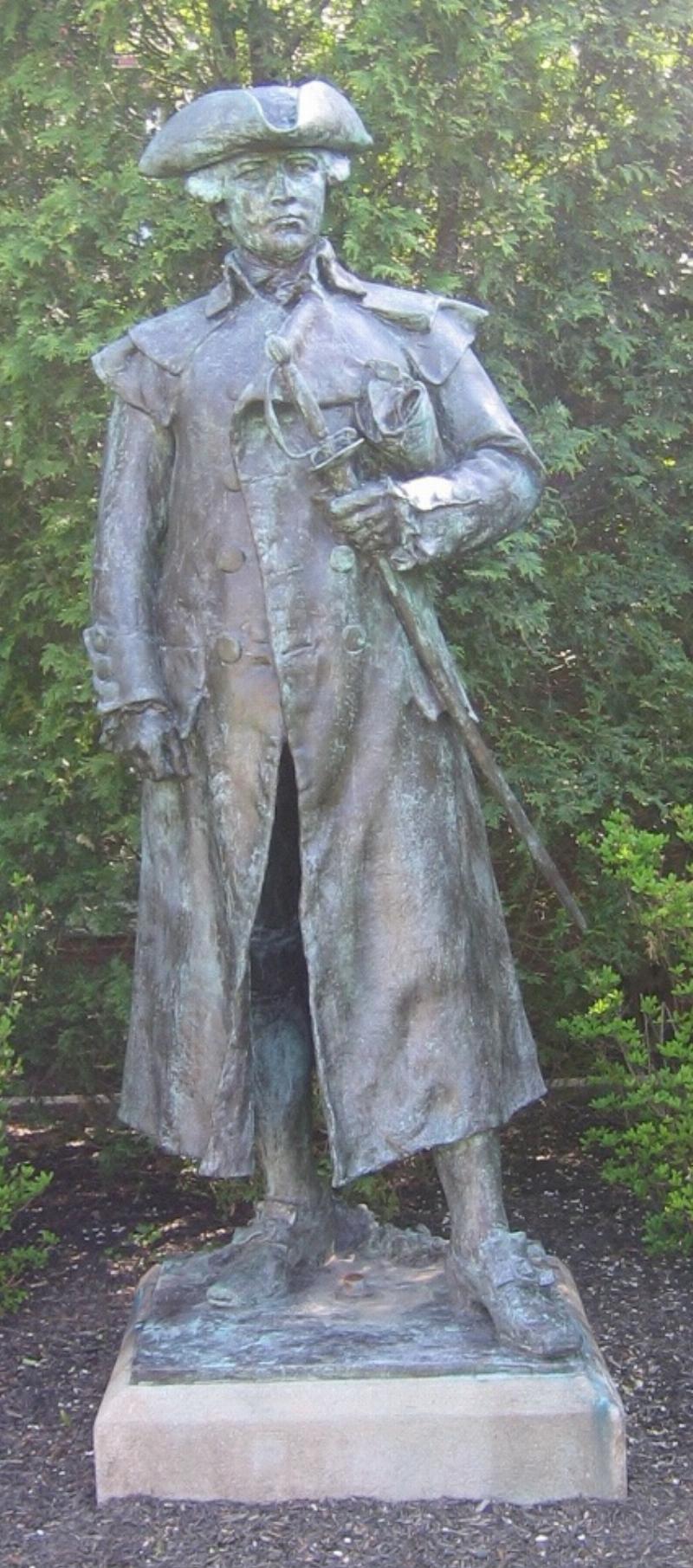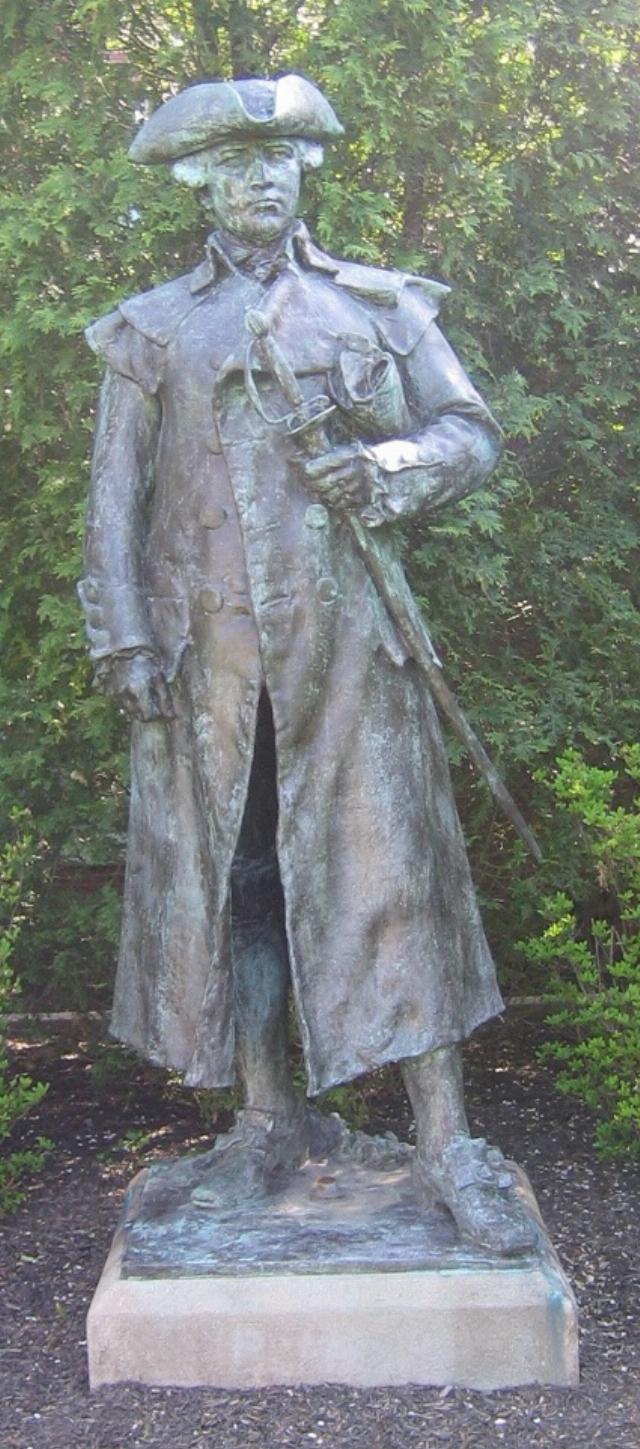


On the morning of June 17, 1775, a physician in his mid-thirties stood near a rough earthen redoubt overlooking the Charlestown Peninsula. He had no command, no formal post on the field, and no obligation to be there at all.
But as the smoke from British warships rose in plumes over Boston Harbor, Dr. Joseph Warren made his way toward the crest of Breed’s Hill, musket in hand. He was the president of the Massachusetts Provincial Congress and was commissioned a major general just days before. He declined command and chose instead to fight as a private soldier—an ordinary volunteer—alongside the men already entrenched.
But Joseph Warren was no ordinary volunteer.
His presence stirred freedom’s fire. Calm amid chaos, he moved among the men, urging them to stand fast. After repeated exhortations, Warren reportedly declared, “These fellows say we won’t fight! By Heaven, I hope I shall die up to my knees in blood!”
And die he did.
Before the Declaration, long before the Constitution, before George Washington formally took command of the Continental Army—Joseph Warren became the Revolution’s first martyr.
His death at Bunker Hill was a jolt to the patriot cause and a harbinger of how real, how irreversible, and how deadly the pursuit of American liberty was about to become.
The Doctor Who Would Not Wait
Born in 1741 in Roxbury, Massachusetts, Joseph Warren rose from modest beginnings to become a Harvard-educated physician, political philosopher, and leading voice of resistance.
By the time of the Boston Tea Party, he was known throughout New England not only as a compelling orator but as a quiet architect of rebellion. He authored the Suffolk Resolves—condemning the Coercive Acts as unlawful and tyrannical, and urging organized resistance—which the First Continental Congress soon endorsed.
In 1774, while Samuel Adams was away attending the Continental Congress, Warren assumed leadership of the patriot cause in Boston. He oversaw the militia, secured stores of munitions, and managed a spy network that spanned social boundaries—from anonymous grooms to the upper echelons of Boston society.
His sources included respected clergy like Samuel Mather—and perhaps even Margaret Gage, the American-born wife of British General Thomas Gage, who was rumored to be one of Warren’s patients and, some believe, his most notable informant.
His intelligence network was the keystone of patriot strategy. He helped orchestrate the Midnight Ride, dispatching William Dawes and Paul Revere to warn Hancock and Adams of impending arrest and to alert Concord to the advancing British regulars.
He was the only known revolutionary to have been present and an active participant in all four skirmishes between Lexington and Concord, as well as the Battle of Bunker Hill.
In March 1775, with British troops threatening to kill anyone who dared speak at the Boston Massacre anniversary, Warren addressed those assembled in a Roman toga—evoking the virtues of the ancient republic—and declared,
Our country is in danger, but not to be despaired of. Our enemies are numerous and powerful—but we have many friends. Determine to be free, and heaven and earth will aid the resolution.
The Road to Breed’s Hill
Two months after the Battle of Lexington and Concord, British forces prepared to seize the heights surrounding Boston. Colonial militias fortified the Charlestown Peninsula, mistakenly digging in not on Bunker Hill, but a closer rise: Breed’s Hill.
On the morning of June 17, British ships unleashed bombardment, and thousands of redcoats landed under General William Howe. Joseph Warren arrived late that morning in civilian dress, musket in hand. He had just been commissioned a major general—but declined command.
Instead, he requested to go where the fighting would be heaviest. Veteran officers directed him to the redoubt.
Militiamen remembered him walking the lines, calm and steady, as cannonballs tore through the earth. His presence gave them new heart.
Twice, the colonial line repelled British assaults. On the third charge, the redcoats breached the breastwork. Ammunition was gone. The line collapsed.
Most retreated. Warren stayed.
He was seen kneeling, still firing, when a musket ball struck him beneath the left eye and exited through the back of his head. He fell beside a locust tree—killed instantly, at the age of thirty-four.
In the aftermath, British troops stripped his body and tossed it in a shallow grave. Captain Walter Laurie later wrote that he “stuffed the scoundrel with another rebel into one hole, and there he and his seditious principles may remain.”
Days later, Royal Navy Lieutenant James Drew returned to the burial site. According to a letter from soldier Benjamin Hichborn to John Adams, Drew spat in Warren’s face, jumped on his stomach, and cut off his head. Even British officers reportedly condemned Drew’s barbarity.
If Warren had become the Revolution’s spirit in life, the abuse of his body made him its martyr in death.
Warren had buried his wife. He was engaged to marry again. He left behind four children—and a nascent revolution that would rise from his sacrifice.
A Martyr’s Legacy
General Gage allegedly remarked that Warren’s death equaled that of five hundred ordinary men—a tribute to how deeply his martyrdom resonated. Whether apocryphal or not, the line captured how Warren’s sacrifice galvanized the patriot cause.
At the time, Warren’s four children were in Worcester with his fiancée, Mercy Scollay, refugees from the Siege of Boston. She took charge of their care and, with help from John Hancock, Samuel Adams, Mercy Otis Warren, Benedict Arnold, and even the Continental Congress, secured support for their education.
His legacy endured not just in memory but in medicine. Warren’s youngest brother, Dr. John Warren, served as a surgeon during the war, including at Bunker Hill. Afterward, he co-founded the Massachusetts Medical Society and established Harvard Medical School, ensuring that the family’s service to the young republic did not end at Breed’s Hill.
Joseph Warren had a rare gift—to unite the fiery and the measured, to rouse a crowd and steady a chamber. He died before there was a nation to lead, yet he led before there was a nation to defend.
He never signed the Declaration. But he made it possible.
Found by a Friend
Ten months later, his body was exhumed. Decomposed and unrecognizable, it could only be identified by one man: Paul Revere. Years earlier, the silversmith had fitted Warren with an ivory dental prosthesis. When he examined the skull, he found the telltale wire still in place.
It was one of the first known uses of forensic dentistry in American history. But it was more than that—it was deeply personal. The messenger and the martyr. The friend who helped spark a revolution, and the one who had given everything for it.
When the Declaration of Independence was adopted on July 4, 1776, Joseph Warren had been dead for over a year. He never saw the parchment. Never heard the cannonade. Never lived to see the fireworks crack the night sky in celebration of the nation he had not yet known.
And yet, few men did more to kindle that flame.
If the Founders were architects, Warren was the cornerstone—laid first, unseen, bearing the weight of all that followed. If the signers pledged their lives, fortunes, and sacred honor, Warren had already pledged his blood.
In that sense, he made their words real.
Today, a granite obelisk rises on the hill where he fell, watching over Boston Harbor—an American cenotaph in stone. It stands not only in remembrance, but also as a testimony.
Rise, lofty Column! in thine attic grace,
And to the stranger-bark that ploughs the deep,
Show Freedom’s land.
— from “Bunker-Hill Monument” by Lydia Sigourney
And beneath that column echo the verses of his creed:
Thine annals boast the great and brave,
Thy star-clad banner tells the wave
Of Liberty or Death.
Warren’s life was short, but his legacy runs long:
Point to the skies, and bid them read
Of patriot faith, the hallowed creed,
And guard its ritual bright—
And choose the path their fathers trod,
Those friends of Liberty and God,
Who rose to realms of light.
As we celebrate this Fourth of July, we rightly honor the names etched in solemn ink.
But we must also remember those recorded before the pen and parchment, in the life-blood of the brave—those who rose to realms of light.
He did not live to sign the Declaration of Independence.
But those Founders who did sign did so in the spirit of Doctor Joseph Warren.
Charlton Allen is an attorney and former chief executive officer and chief judicial officer of the North Carolina Industrial Commission. He is founder of the Madison Center for Law & Liberty, Inc., editor of The American Salient, and host of the Modern Federalist podcast. His commentary has been featured in American Thinker and linked across multiple RealClear platforms, including RealClearPolitics, RealClearWorld, RealClearDefense, RealClearHistory, and RealClearPolicy. X: @CharltonAllenNC

Image: Public domain.
